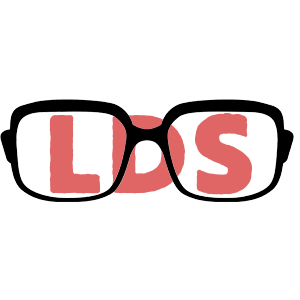The shift from a chronological timeline to a “relevant” timeline is not a new concept for Instagram’s parent company Facebook. The announcement today that the picture sharing platform will follow suit with Facebook isn’t a shock, more of a disappoint that has the potential to threaten users' time. I know that statement might seem dramatic, but let’s examine what happened with Facebook’s Timeline change and see what is at stake for Instagram.
When Facebook first changed our Walls to Timelines, it didn’t seem like a big deal. The new Timeline provide a view of our present and history that appeared to help place context around the content of our lives. As the Timeline became the norm Facebook slowly changed the way all of us viewed content, the News Feed. This change shifted our view from chronological time to “relevance”. Facebook intended the News Feed to “deliver the right content to the right people at the right time so they don’t miss the stories that are important to them.” Here was the catch to this promise, the user doesn’t get to determine how the right content or people are chosen without heavy participation in the platform. At first this seemed like an annoyance more than a problem, but this change has impacted our thoughts, community and time.
I am going to outline how these three aspects of our life are manipulated by the change of a chronological display.
Thoughts: Facebook says that they are going to ensure the right content is displayed to users at the right time. This is also the promise for Instagram with the company saying, “The order of photos and videos in your feed will be based on the likelihood you'll be interested in the content, your relationship with the person posting and the timeliness of the post". The glaring problem with this statement is that determining what the “right” content might be is incredibly subjective. What ends up happening is that a user continuously sees similar content/posts to what has been “liked” or read in the past. Facebook feeds then get populated with posts that reaffirm the user’s beliefs, not with content that could challenge ideas, nothing contrarian at all. We are all moving into a world where we are fed exactly what we want and nothing more. Without the diversity of ideas or the perspective of others that differ from our own there are no lessons to learn, no questioning and ultimately no forward momentum in our thoughts. As my friend Courtney Algeo put it Facebook became, “that horrible land in Pinnochio that turns kids into donkeys. You can't eat candy all day and expect to be OK.”
Community: I can hear you know, “But Lea, if Facebook is showing me the most important people in my community doesn’t that make my relationship with those people stronger”. My answer, “Nope”. Most of us have Facebook friends into the hundreds, and Facebook is right that managing all of the content would be overwhelming. It would seem that Facebook aggregating posts from your closest network would be valuable, so what’s the catch? Again, the user doesn’t pick the most important people in their network. This means everyone that is important to you is in competition with everything else you “like” on Facebook for relevancy. For example, I “like” NPR on Facebook and I also “like” my best friend’s mom. The content my friend’s mom posts is never going to be more popular than NPR, so it has the potential of never being at the “right place at the right time”. As the user, I don’t get to make that decision. That means my relationship is now potentially stronger with a news organization with sponsored content over my best friend and his family. This is the influence Facebook has over our communities. And back to my first point, our community is continuously being filled with people who have similar thoughts or “likes”, creating a vacuum that sucks up and out any diversity. Yes, each Facebook user has the ability to tag close friends, get notifications from people and hide/block/unfriend anyone they don’t want to see, but that is a lot of management and upkeep. To maintain any type of control or autonomy the Facebook News Feed demands a dynamic that went from passive participant to active user. This leads me to…
Time: For the Facebook Timeline to actual be relevant and provide a view of information that is pertinent you have to log-in and connect often. Without continuous interaction the platform cannot get to know who your most important friends might be or what content you expect to see from those friends. It also demands that your friends connect often and post or they will be lost in the Facebook Timeline ether. If a user wants more control over their Timeline view, well that is even more time on the platform, hiding, liking, tagging. If a more robust relevant Timeline is what you want Facebook doesn’t actually provide that, you do by giving over your time to Facebook.
Instagram changing their platform to assist with relevance is a veiled attempt to take up more of its users’ time. Tech Crunch stated that “The average Instagram user misses 70 percent of what’s in their feed, including great photos with tons of Likes and posts by their best friends”. Maybe everyone on Instagram will see 70% more content, but they will be spending probably 100% more time on the platform, watching their Instagram posts compete with celebrities, companies or any other user that decides to put in more time.

